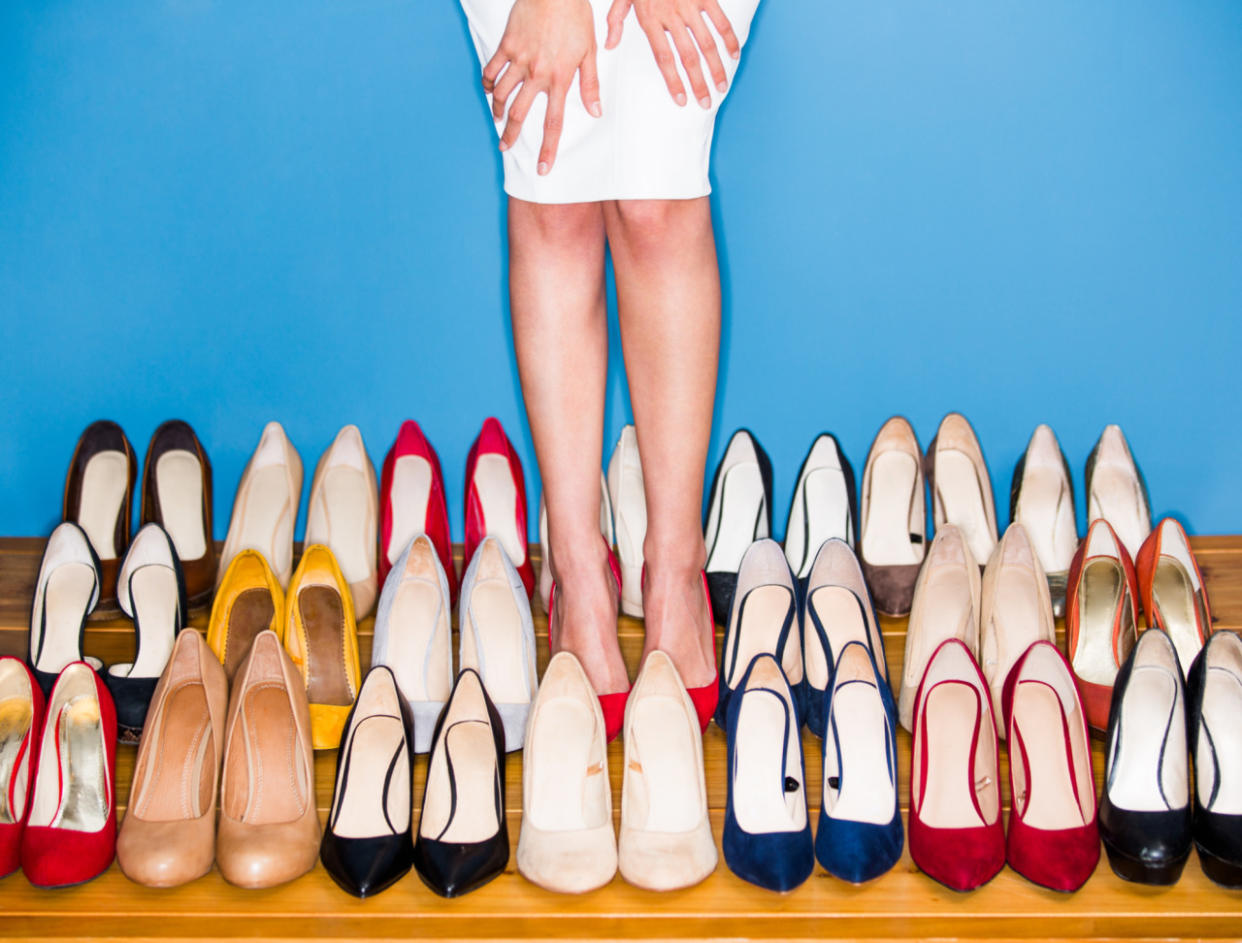Scientists: Shopping Addiction Is Real ... and Here's How to Tell If You Have It

Turns out certain personality traits make you more likely to be a shopping addict, too. Do you have them? (Photo: Getty Images)
Shopping addiction is a real problem, scientists say — and they’ve come up with a method to measure it.
Researchers from Norway’s University of Bergen have created The Bergen Shopping Addiction Scale, a questionnaire that uses seven diagnostic addiction criteria to determine whether a person is a shopping addict, plus how severe their addiction may be. They tested it on 23,537 study participants and published the results in the journal Frontiers in Psychology.
Among other findings, scientists discovered that women are more likely to be shopping addicts, and the addiction tends to start in a person’s late teens. However, it also seems to decrease as they get older.
Certain personality traits make someone more likely to be a shopping addict, too. Researchers found that those who had higher levels of extroversion and neuroticism were more likely to be compulsive buyers. People who suffer from anxiety, depression, and low self-esteem were also at risk.
Want to take the test?
Answer the following questions with “completely disagree, disagree, neither disagree nor agree, agree, and completely agree:”
You think about shopping/buying things all the time.
You shop/buy things in order to change your mood.
You shop/buy so much that it negatively affects your daily obligations (e.g., school and work).
You feel you have to shop/buy more and more to obtain the same satisfaction as before.
You have decided to shop/buy less, but have not been able to do so.
You feel bad if you for some reason are prevented from shopping/buying things.
You shop/buy so much that it has impaired your well-being.
If you answer “agree” or “completely agree” on at least four of the seven items, you may be a shopping addict.
If you are a shopping addict, you’re not alone.
Study co-author Cecilie Schou Andreassen, PhD, a clinical psychologist and professor at the University of Bergen tells Yahoo Health that shopping addiction may be on the rise. “It is likely that new Internet-related technologies can greatly facilitate the emergence of problematic shopping behavior because of factors such as accessibility, affordability, anonymity, convenience, and disinhibition,” she says.
Study co-author Elias Aboujaoude, MD, a Stanford University psychiatrist and the author of Virtually You: The Dangerous Powers of the ePersonality tells Yahoo Health that the prevalence of online shopping definitely hasn’t helped.
“Now that money has gone virtual, it is even less routed in a physical or real transaction, possibly leading to more over-shopping and overspending,” he says. “Similarly, marketing seems more sophisticated and targeted than ever, potentially making us all more vulnerable.”
While shopping addiction has been recognized in psychiatric literature for more than a century, Andreassen says there is a lack of understanding out how it should be defined, conceptualized, and measured, which the new test is hoping to fix. As a result, scientists estimate that one to 20 percent of the population (a large range) is a shopping addict.
She says the new scale “reliably differentiates” between shopping addicts and non-addicts, and can help encourage treatment in people who need it.
What should you do if you didn’t score so great on the test?
Andreassen says there is no well-documented treatment for effective shopping addiction, but financial counseling, individual and group therapy, self-help tips, and even medications have been proposed by some experts.If you’re concerned you may be a shopping addict.
Andreassen also offers these self-help tips:
Make a decision to change your behavior.
Be aware of and keep away from things that tempt you to shop.
Get rid of your credit cards and use cash as much as possible.
Make a shopping list and stick with it.
Use relaxation and mediation awareness to deal with uncomfortable feelings (instead of shopping).
Make a rule to wait at least 24 hours before buying something you want.
And, if all else fails, seek help from a professional.
Read This Next: 6 Subtle Signs You’re Addicted to Shopping

